Cassidy All
Social Choice for Heterogeneous Fairness in Recommendation
Oct 06, 2024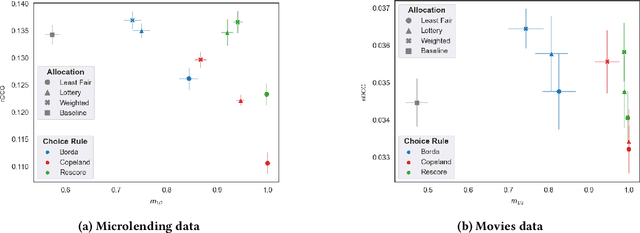
Abstract:Algorithmic fairness in recommender systems requires close attention to the needs of a diverse set of stakeholders that may have competing interests. Previous work in this area has often been limited by fixed, single-objective definitions of fairness, built into algorithms or optimization criteria that are applied to a single fairness dimension or, at most, applied identically across dimensions. These narrow conceptualizations limit the ability to adapt fairness-aware solutions to the wide range of stakeholder needs and fairness definitions that arise in practice. Our work approaches recommendation fairness from the standpoint of computational social choice, using a multi-agent framework. In this paper, we explore the properties of different social choice mechanisms and demonstrate the successful integration of multiple, heterogeneous fairness definitions across multiple data sets.
Data Generation via Latent Factor Simulation for Fairness-aware Re-ranking
Sep 21, 2024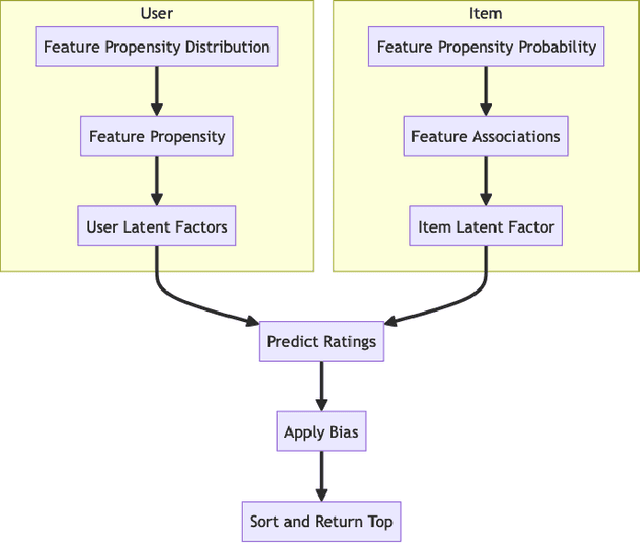

Abstract:Synthetic data is a useful resource for algorithmic research. It allows for the evaluation of systems under a range of conditions that might be difficult to achieve in real world settings. In recommender systems, the use of synthetic data is somewhat limited; some work has concentrated on building user-item interaction data at large scale. We believe that fairness-aware recommendation research can benefit from simulated data as it allows the study of protected groups and their interactions without depending on sensitive data that needs privacy protection. In this paper, we propose a novel type of data for fairness-aware recommendation: synthetic recommender system outputs that can be used to study re-ranking algorithms.
Exploring Social Choice Mechanisms for Recommendation Fairness in SCRUF
Sep 10, 2023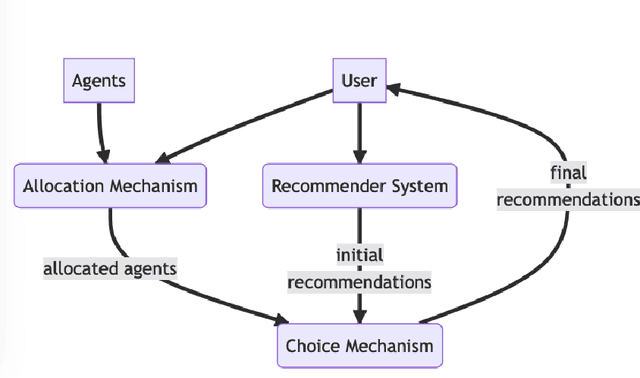
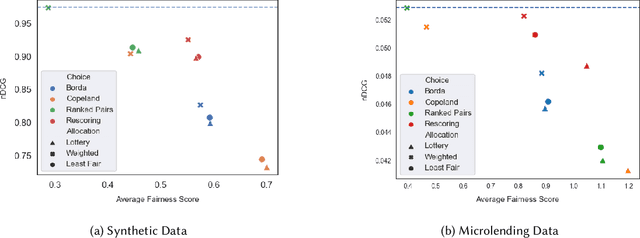
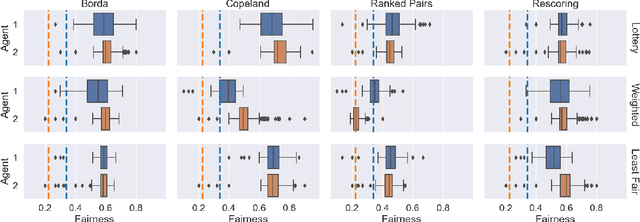
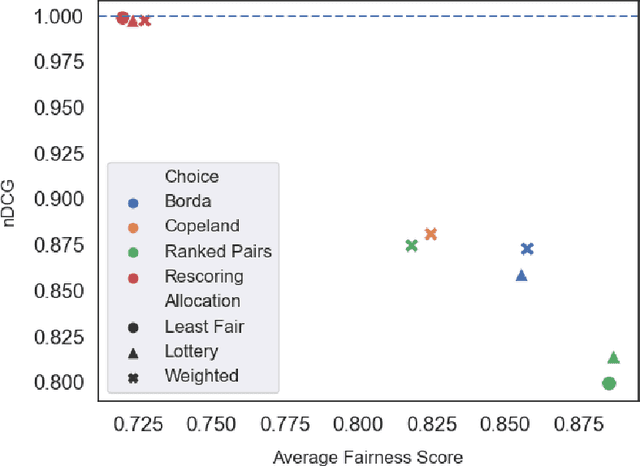
Abstract:Fairness problems in recommender systems often have a complexity in practice that is not adequately captured in simplified research formulations. A social choice formulation of the fairness problem, operating within a multi-agent architecture of fairness concerns, offers a flexible and multi-aspect alternative to fairness-aware recommendation approaches. Leveraging social choice allows for increased generality and the possibility of tapping into well-studied social choice algorithms for resolving the tension between multiple, competing fairness concerns. This paper explores a range of options for choice mechanisms in multi-aspect fairness applications using both real and synthetic data and shows that different classes of choice and allocation mechanisms yield different but consistent fairness / accuracy tradeoffs. We also show that a multi-agent formulation offers flexibility in adapting to user population dynamics.
 Add to Chrome
Add to Chrome Add to Firefox
Add to Firefox Add to Edge
Add to Edge